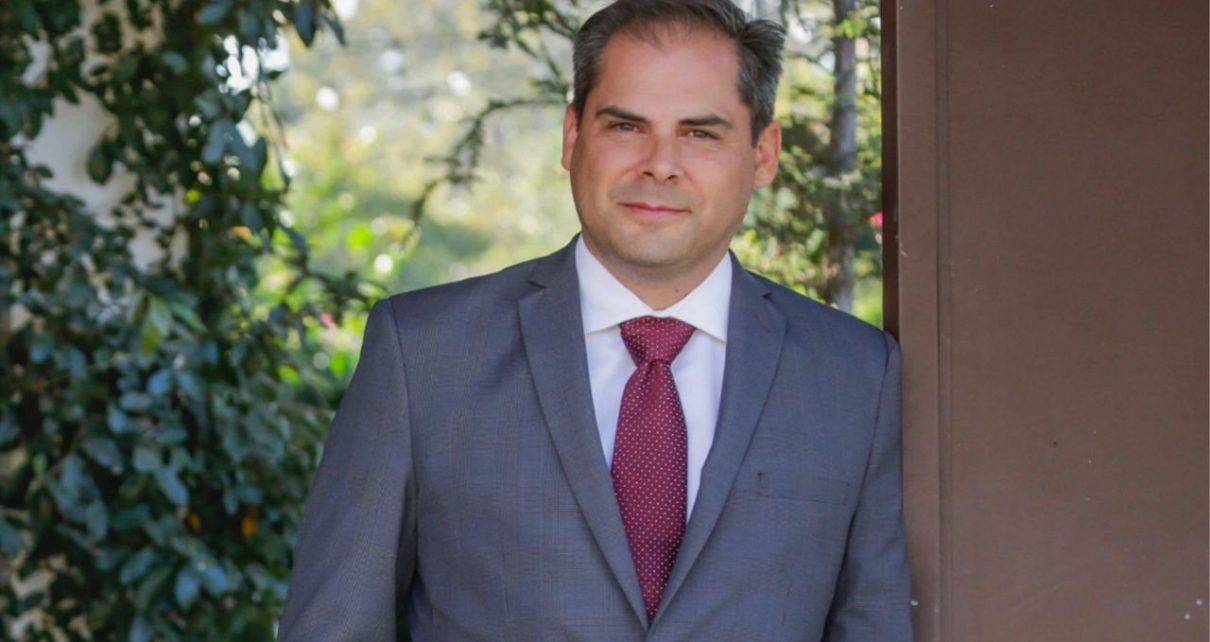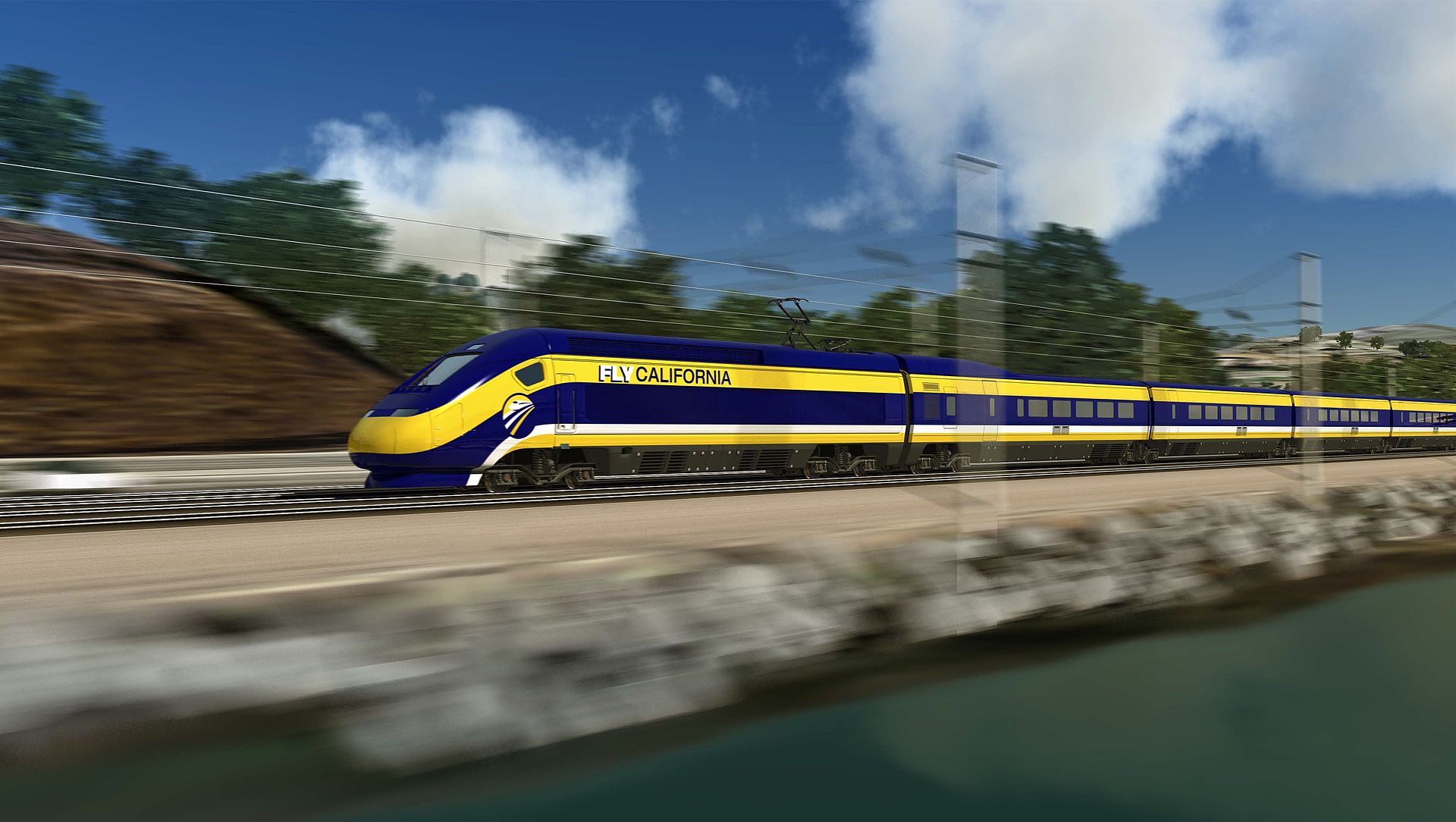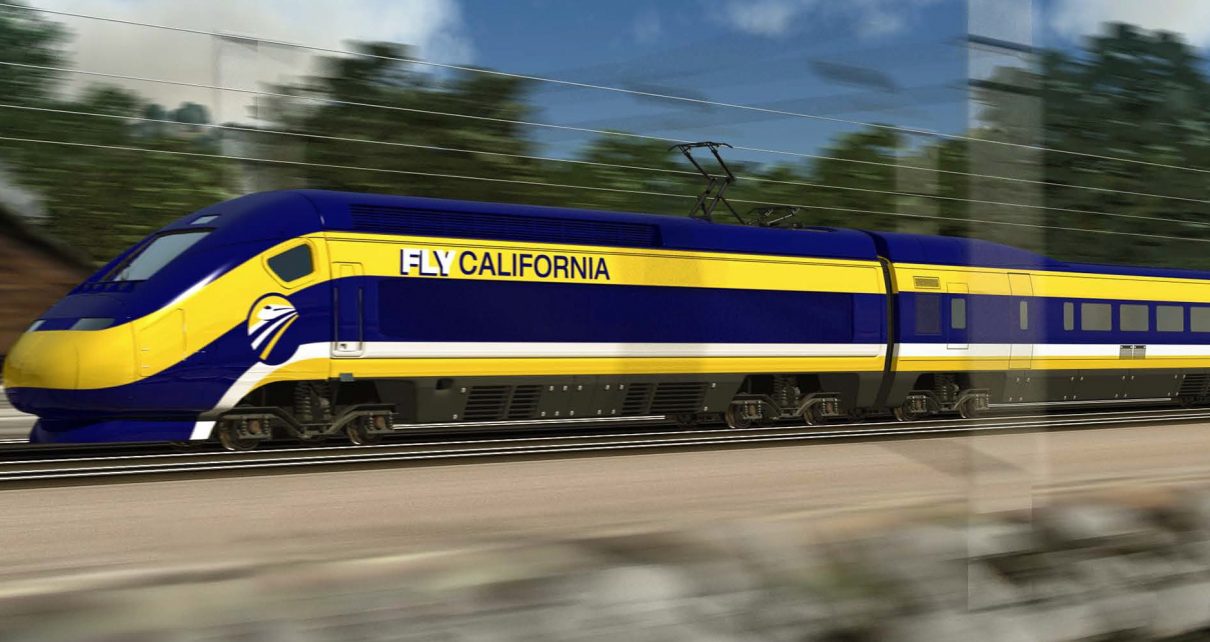
Congressman Mike Garcia (R-CA) (Photo: Mike Garcia official Twitter)
House Republicans Add More Pressure To Stop Funding for California High-Speed Rail
Congressman Mike Garcia, others reach out directly to Transportation Secretary Buttigieg
By Evan Symon, April 19, 2021 2:50 pm
In the last week, pressure has grown in Washington for Department of Transportation (DOT) Secretary Pete Buttigieg to not fund or support California High-Speed Rail (CHSR).
While there has always been significant opposition against the federal government from funding CHSR, as seen by Republicans continuing to vote against funding such systems, and California Republican Representatives such as Congressman Mike Garcia (R-CA) introducing bills to stop all federal funding from going into CHSR, the new administration’s large push for high-speed trains has caused many to up their efforts to stop it.
President Joe Biden and Secretary Buttigieg specifically have strong train ties which makes stopping or reducing funding more difficult. Biden has been a large Amtrak and train supporter due to decades of taking the train to Washington from his home in Wilmington, Delaware while a Senator, with the train station in Wilmington now bearing his name as a way to honor his train commitment. Buttigieg has also had a strong train track record, championing high-speed rail systems in the country since he was sworn in.

“We’ve been asked to settle for less in this country,” said Buttigieg in February. “I just don’t know why people in other countries ought to have better train service and more investment in high-speed train service than Americans.”
Congressional members, particularly Republicans, are currently finding ways to stop the system, largely due to the high cost of constructing such a system. Californian members have given many rail supporters pause by showing them what has happened with CHSR, shocking many with the costs that have increased from the original estimate of $33 billion to as much as $100 billion today, and how project delays have pushed back a full opening in 2028 to only a partial opening sometime in the 2030’s. Two major delays by the CHSR since Biden took office, moving back the first segment from opening by a combined additional three years, has been particularly worrisome.
Last Thursday, this came to a head as many members of Congress blasted the CHSR in a House Appropriations Subcommittee on Transportation, and Housing and Urban Development (THUD) budget hearing and urged Secretary Buttigieg not to support it.
“My hope is that while we aspire to fund programs that create jobs…we’re not only creating jobs but we’re also solving problems and bringing value to our communities relative to transportation,” said Congressman Garcia on Thursday. “There are going to be programs that we should not be funding. There are programs that are either way behind schedule, that are hemorrhaging with massive overruns, that have little or no meaningful value to the transportation and infrastructure to our grids, to decompressing traffic in our local areas. I come from California, I come from Southern California where we have nightmare traffic. It’s the blueprint for disaster on our freeways.”
In his argument against high-speed rail, Garcia told the committee about how CHSR is hemorrhaging money and was supposed to have been completed last year.
“CHSR is now over a decade behind. It was supposed to be done by 2020 it’s really just now beginning,” added Congressman Garcia. “It’s way over budget, it was supposed to be $33 billion and it’s now looking to be about $100 billion, which is effectively about 20 percent of what the transportation elements of the JOBS Act will be, that’s a lot of money. And it’s still not a necessary means of transportation through California when we have alternative rail, we have Metrolink rail that just needs to be expanded and improved upon, we have highways that need to be expanded and improved upon.
“I will go on the record that high-speed rail in California will not help our traffic problems, not in Southern California, Northern California and certainly not in Central California.”
Californian GOP congressional members join together in letter to Buttigieg urging him to stop funding CHSR
In a letter sent last week and delivered to Secretary Buttigieg on Monday, prominent members of Congress, including California representatives Garcia, Michelle Steele (R-CA), Doug LaMalfa (R-CA), Ken Calvert (R-CA), Darrell Issa (R-CA), Young Kim (R-CA), Devin Nunes (R-CA), and David Valadao (R-CA) urged him not to continue funding for the CHSR, particularly noting that the tens of billions that have been added to California’s rail cost would only help make the country’s financial crisis even worse.
“The California high-speed rail project has been a costly failure from day one,” said the lawmakers in the letter. “It has cost California taxpayers enough for this failed Obama-era project and we can’t afford to take on more dead weight projects with our 27 trillion debt still growing. We must avoid furthering our financial crisis before it’s too late.”
Many rail experts have noted that while the trend in the U.S. has been for building up more systems, particularly high-speed rail systems, continued opposition may wear many lawmakers down, with added delays meaning that a final vote over funding could be pushed back several years, by which time a new Congress would in power.
“There are many scenarios in which American rail expansion could be halted,” explained German passenger railroad consultant Horst Bauer to the Globe. “It’s unlikely at this time that it would happen, but Americans have, in recent history, been opposed to rail. That opposition to it may come through once again. But, with President Biden’s support, and his party being the majority in both houses, means that high-speed rail funding can pass and pass soon. It’s no wonder why the other party is acting urgently, and loudly, to this.”
More hearings on high-speed rail funding in Washington are expected later this year. California Republicans are expected to continue the lead against federal CHSR funding.
- ‘Fix Prop 47’ Initiative Receives Over 900,000 Signatures – Qualifies for November Ballot - April 18, 2024
- Google Fires 28 for Anti-Israel Sit-in at Work - April 18, 2024
- California Retains Title As World’s 5th Largest Economy - April 18, 2024




High Speed Rail is a failure, I don’t know why voters even approved it, even if they were told it wasn’t going to cost much. High speed rail only benefits the upper class, likely liberal environmental supporting tourists and politicians and literally everyone who needs to travel 20 or 50 miles already has a car. Also a car you can control your route easier than a train since it can only travel to certain stops before you have to hop on a different transportation method. In the end it’s going to cost $100 billion all for some useless transportation environmental advocates are cheering on.
More of the same from the old dragged-kicking-and-screaming-into-the-future crowd.
Who’s gonna ride a stupid train with the threat of Covid and all the supposed variants???
Do these politicians think we’re THAT stupid???
I already know the answer, thanks…
Well, I sure agree, it is a waste of taxpayer money!
My concern is you are pleading with a guy who fakes his work commute on his bicycle. He gets a head start in a big gas guzzling SUV with secret service in tow to a staging area and then hops on his bike for a couple of blocks to work. I mean you cannot make this stuff up. The current administration is not interested in saving your hard earned tax dollars.
It is a train and cycle show????
“The Sum of All Rears”
The proposed high-speed rail was obsolete 10 years ago, think Elon Musk hyperloop (magnetic levitation, low pressure tube) @ 700mph. And to Vegas? Also, won’t that require a substantial amount of water being used along the way, during a “Super drought?”
We want the train built now, not tomorrow, China already has thousands of miles and we have almost none.